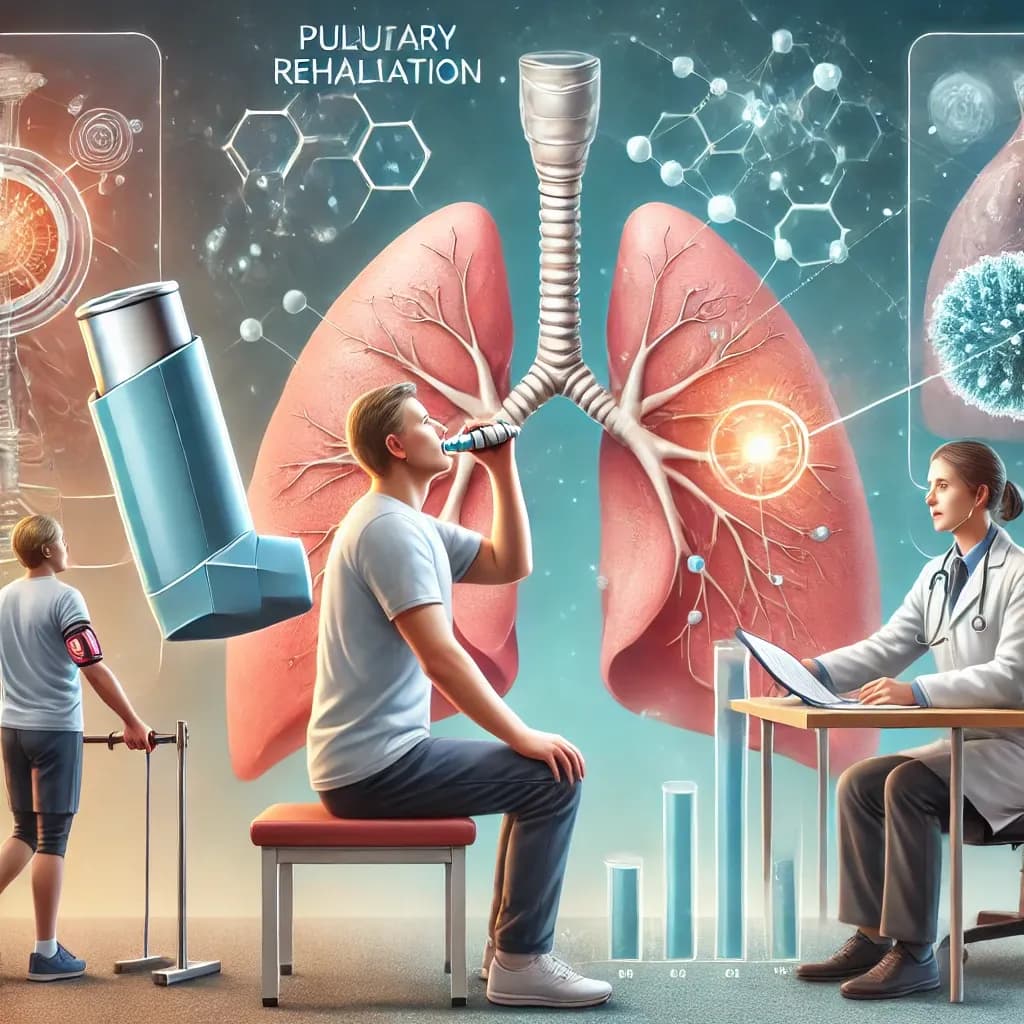Advanced Therapies for Chronic Pulmonary Disease Patients
Chronic Pulmonary Disease (COPD) is a long-term condition that requires a comprehensive treatment plan to improve quality of life and manage symptoms effectively. As medical understanding advances, so do the therapies available, offering new hope to patients.

Key Treatment Approaches
Medications for COPD
Medications are a cornerstone of COPD treatment. Common options include:
- Bronchodilators: Help open airways and improve airflow.
- Anti-inflammatory drugs: Reduce inflammation in the airways.
- Phosphodiesterase-4 inhibitors: Target severe inflammation to improve breathing.
Best Inhalers for COPD
Modern inhalers deliver medication directly to the lungs. Effective options include:
- Long-acting bronchodilators: Provide extended relief from symptoms.
- Dual-action inhalers: Combine bronchodilators with corticosteroids for better control of moderate to severe COPD symptoms.
Managing COPD Symptoms
COPD treatments aim to relieve symptoms like shortness of breath and chronic cough. Key strategies include:
- Pulmonary Rehabilitation: Combines exercises and breathing techniques to enhance lung function.
- Oxygen Therapy: Portable oxygen devices help patients with severe oxygen depletion.
Lifestyle changes are equally important. Avoiding smoke, eating a balanced diet, and staying active can greatly improve daily well-being.
Advanced Therapies
For patients with severe or treatment-resistant COPD, advanced therapies offer new possibilities to improve symptoms and overall quality of life. These innovative treatments include:
Surgical Interventions
Lung Volume Reduction Surgery (LVRS): This procedure removes damaged portions of the lungs to improve breathing efficiency. By reducing lung hyperinflation, it allows healthier lung tissue to expand and function more effectively.
Lung Transplant: For end-stage COPD patients who meet specific criteria, a lung transplant can provide a life-extending option, although it comes with significant risks and the need for lifelong immunosuppressant therapy.
Biologic Medications
Targeted Biologic Therapies: These cutting-edge treatments work at a molecular level, targeting specific inflammatory pathways associated with COPD. Biologics like monoclonal antibodies can significantly reduce exacerbations in certain patients, particularly those with an inflammatory component.
Endobronchial Valve Therapy
Minimally Invasive Lung Reduction: This innovative procedure involves placing small valves in the airways, which redirect airflow away from damaged areas of the lung, reducing hyperinflation. This results in easier breathing and improved quality of life. Endobronchial valves are particularly beneficial for patients who are not candidates for more invasive surgeries.
Non-invasive Ventilation (NIV)
Breathing Support: Non-invasive ventilation devices provide breathing assistance, especially during sleep, for patients with advanced COPD. NIV reduces the work of breathing and helps prevent exacerbations, improving overall comfort and oxygenation.
Stem Cell Therapy (Experimental)
Regenerative Medicine: Although still in experimental stages, stem cell therapies are being explored as a way to repair lung tissue damaged by COPD. Early studies suggest the potential to regenerate healthy lung cells and improve lung function.
Research and Future Developments
The landscape of COPD treatment continues to evolve as researchers explore new therapies, such as:
- Gene Therapy: Aimed at repairing or replacing defective genes linked to lung damage.
- Personalized Medicine: Using patient-specific data to tailor treatments and improve outcomes.
- Wearable Technology: Advanced monitoring devices that track symptoms and predict exacerbations in real-time.


